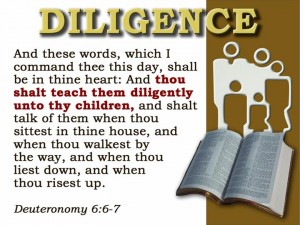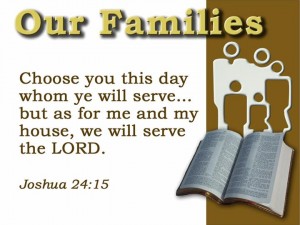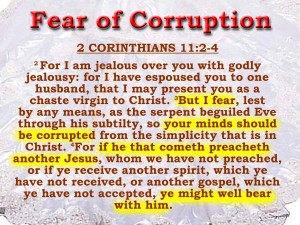A Responsibility to the Ecclesia
 The protocol of order in the meetings is explained in some detail by the Apostle Paul. This was as a result of the success of the preaching of the gospel, when ecclesias had been organised. As there had been procedures in the Law of Moses for the assembling of the people in worship, so there were key principles to consider in the operation of the meetings of the body of Christ. The first letter to the Corinthian ecclesia answered specific questions. Chapter 11 lays the basis in verse 3. This was the order in the hierarchy of worship:
The protocol of order in the meetings is explained in some detail by the Apostle Paul. This was as a result of the success of the preaching of the gospel, when ecclesias had been organised. As there had been procedures in the Law of Moses for the assembling of the people in worship, so there were key principles to consider in the operation of the meetings of the body of Christ. The first letter to the Corinthian ecclesia answered specific questions. Chapter 11 lays the basis in verse 3. This was the order in the hierarchy of worship:
- God
- Jesus Christ
- man
- woman
Notice that verse 18 and 20 specifically refers to the coming together of the body of Christ “when you come together in ecclesia”; the formal assembly.
Modern life is marked by the casual, leisurely approach. The worship of God, however, requires a reverential approach which demonstrates the importance to which the worshiper ascribes to Him.
Ecclesial meetings are to be marked by modesty, decorum and orderliness (1 Timothy 2:8-10; 1 Corinthians 14:40). The quiet, thoughtful manner in which meetings are prepared for and conducted, will assist all those attending to turn their mind to thinking about the privilege of their association with the God of the universe and encourage their desire to serve Him with renewed vigour.
Office Holders: Spiritual qualities must be present in the life of one who wishes to hold office in the ecclesia. The normal qualifications that are accepted by the world for positions are quite different from what Christ requires. The general principle is that if he cannot exercise wisdom in his personal and family life, then he will hardly have the capacity to direct affairs of the ecclesia with the necessary consideration. (1 Timothy 3:2-5; Acts 6:3,6). There is to be no “lordship” over others, but a mutual submission, a service of humility (1 Peter 5:1-6). The development of the Church with pomp, position and authority demonstrates that the clear teaching of the Word of God has been ignored in its quest for power and control.
The Bible message is work on yourself, BEFORE you work on others (Proverbs 16:32; Matthew 5:16).. God sets the requirement: “He that ruleth over men must be just ruling in the fear of God” (2 Samuel 23:3).
The young can enter the work, but under guidance. There is the example given of John Mark, the nephew of Barnabas, who is described as a “minister” in Acts 13:5. This is the Greek word “huperetes” which means “under-rower”, and describes a system we would best equate with apprenticeship. John Mark assisted in the work with Paul and his uncle Barnabas. However, the young or the newly converted cannot “take office” (1 Timothy 3:6). They are required to learn and be under direction.
B The scriptural role of men and women
 The man is to take the leading role in the assembly of believers. He speaks “in ecclesia”. The modern church practice of women preaching is unBiblical. Women are commanded to keep “silence in ecclesia” (1 Corinthians 14:34).
The man is to take the leading role in the assembly of believers. He speaks “in ecclesia”. The modern church practice of women preaching is unBiblical. Women are commanded to keep “silence in ecclesia” (1 Corinthians 14:34).
Women occupy a supportive role. They teach in private ie “in house”, and minister in both welfare and care. Some New Testament examples are:
- Women who “ministered” to the Lord – served (Luke 8:3; Romans 16:1-4)
- Aquila and Priscilla (as a couple) (Acts 18:26; Romans 16:3)
- 4 sisters who were prophetesses (Acts 21:9)
- Older sisters to teach the young (Titus 2:4,5)
C The Danger of Isolation
Baptism is essential to salvation. After baptism, the believer needs support and encouragement. For this reason, the ecclesia was formed. Where possible, the believer should take his place in the ecclesia of God, because this is necessary for his personal development and growth (1 Timothy 3:15). Jesus Christ as High Priest presides over the “house of God” (Hebrews 10:21-25). In this section in Hebrews, Paul makes several points:
V22 “Let us draw near” (having been baptised)
V23 “Let us hold fast”
V24 “Let us consider one another” – this is doubtless the mutual, beneficial association with each other.
V25 “Not forsaking the assembling of ourselves together”. The body of Christ cannot effectively operate unless we are actively engaged with it.
The word “provoke” in verse 24 is the word from which we get the English word “paroxysm”. So each member of the house of God acts as a stimulation, an encouragement or an excitement to others.
In the first century, some devout believers, becoming overwhelmed with the practical issues of living a life of devotion and holiness, segregated themselves from normal life, and took themselves off to live in lonely places, where they thought they would not be bothered with temptation. These people were known as ascetics; and this movement gave rise to monasteries. However, this is not what is intended. Christ lived among, and worked with, ordinary people. Part of our fitting for the Kingdom of God, is to be “shaped” during the course of the daily trials of life. None of the apostles segregated themselves (apart for brief periods of rest and spiritual reflection).
D The Principle of Fellowship
 Fellowship with God was only achieved by “walking in light” (1 John 1:5-7). This means that there had to be a basic knowledge and understanding of God and His purpose. “The light of the knowledge of the glory of God is seen in the face of Jesus Christ” (2 Corinthians 4:6), and this is the reason why we are to come to know God and His Son (John 17:3). As we learned in the first lesson, knowledge is the basis of our faith, “faith comes by hearing the Word of God” (Romans 10:17).
Fellowship with God was only achieved by “walking in light” (1 John 1:5-7). This means that there had to be a basic knowledge and understanding of God and His purpose. “The light of the knowledge of the glory of God is seen in the face of Jesus Christ” (2 Corinthians 4:6), and this is the reason why we are to come to know God and His Son (John 17:3). As we learned in the first lesson, knowledge is the basis of our faith, “faith comes by hearing the Word of God” (Romans 10:17).
The word for fellowship is “koinonia” which simply means ‘sharing, (from “koinos” common; hence a sharing in common). There was to be a fraternal association between the believers. The word koinonia is translated “contribution” in Romans 15:26, for a monetary gift for the poor saints in Jerusalem. Hence this was a “sharing” between disciples. The early converts at Jerusalem, “had all things in common” (koinos), re-distributing their property and wealth among the community.
Fellowship is on the basis of an understanding of the doctrine of Christ (2 John 9). The Apostle John was the longest living disciple, and he lived long enough to see factions and difficulties arise in the ecclesias. He advises “trying” the spirits, so see who is a true disciple “because many false prophets are gone out into the world” (1 John 4:1). He identifies the key doctrine which later developed into the trinity. It was a belief that Jesus Christ did not “come in the flesh”, that is, he did not have human nature as other sons of Adam. This was the teaching of the incarnation. John warned that those who held this teaching were not believers in the full sense of the word, and they should not be received into the ecclesia (2 John 10). If he is “received” (the language of fellowship) then it implies acceptance of his wrong doctrine and behaviour resulting in a fellowshipping (or sharing) of his “evil deeds”.
The Breaking of Bread ceremony (seen as a fellowship meal) was not just a “going to church on Sunday”. Fellowship involved a full participation, so that all were participants in the “building up of the body”, as we have seen in Ephesians 4. As we saw in Lesson 3, those baptised on the day of Pentecost “continued in the apostles’ doctrine, breaking of bread, fellowship and prayers” (Acts 2:42)
Functioning within the ecclesia
In 1 Corinthians 12:4-11, Paul is describing the distribution of the gifts of the Holy Spirit. He explains that there is one Spirit (v4) but various methods in which it was divided and worked (v5,7,11). Each person had a different gift, eg one has wisdom, one healing etc (verses 8-10). Together, these various gifts all made up the one Spirit. All were functioned in their individual capacities to contribute for the one purpose.
In an endeavour to provide an example for them to understand, he used the analogy of the human body (1 Corinthians 12:12-26). There is ONE body, even as there is the one body of Christ (Ephesians 4:4,12-16). However, the body is composed of many parts: hand, eye, arm, foot, uncomely parts (eg excretory system). ALL are necessary for healthy, complete functioning.
As parts of the body, all must exhibit care for each other. All have a “need” of each other, none can despise another. And since the various parts of the body are linked by a nervous system, so the whole body “suffers” (verse 26) when one part of the body is in pain or injured.
The body was not complete unless it was linked to the head, who is the Lord Jesus Christ. Without the head, there may be some twitching or movement, but no proper useful activity, and certain no direction or intelligence. Our spiritual growth is spoken of as “growing up into him in all things, the head, even Christ from whom the whole body fitly joined together and compacted by that which every joint supplies … makes increase of the body unto the edifying of itself..” (Ephesians 4:15,16). Whether we are attached to Christ, or not, will finally determine whether we are in fellowship with God, for “severed from me ye can do nothing” (John 15:5 cp margin translation).
Next and final lesson: The Disciple and the World – our values and attitudes must be distinctly different from the human culture of society.




